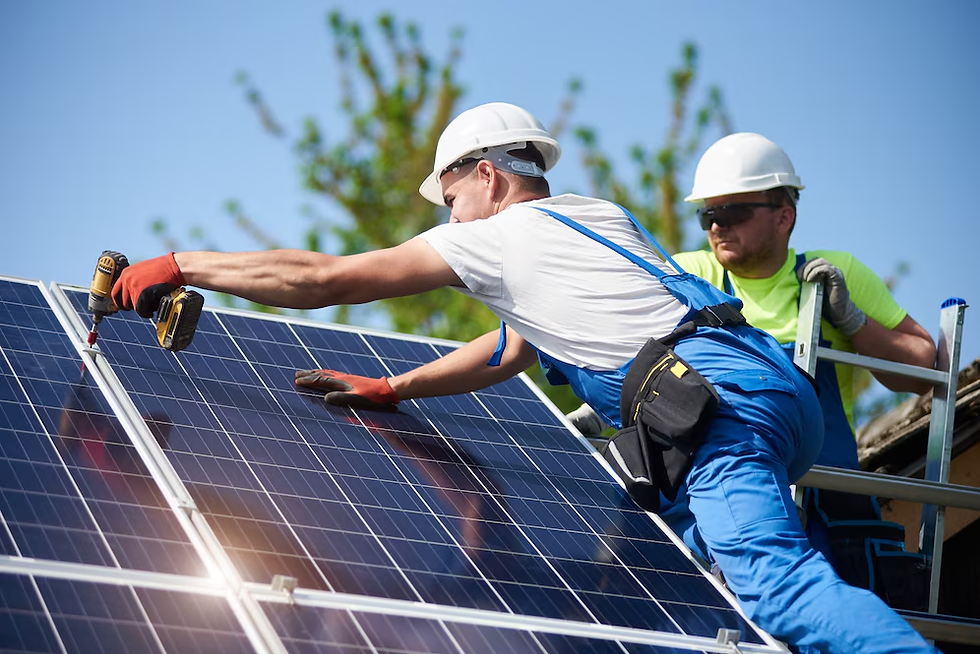Battery Storage Systems for Renewable Energy: Are They Worth It?
- John Shaw
- Jul 21, 2025
- 3 min read
As more UK homes and businesses embrace renewables, the question of energy storage has taken centre stage. While solar panels and wind turbines are popular renewable technologies, their effectiveness depends heavily on when and how you use the electricity they generate. That’s where battery storage systems come in.
But are battery storage systems truly worth the investment? In this blog, we’ll explore how battery storage works with renewables, assess the benefits and challenges, and discuss whether it’s the right step for your home or commercial property.

What Are Battery Storage Systems?
Battery storage systems are designed to store excess electricity generated from renewable energy sources, such as solar panels or wind turbines. Rather than exporting unused electricity back to the grid, the stored energy can be used later—especially during peak demand times or at night when solar power isn’t available.
For homes and businesses generating their own electricity from renewables, a battery storage unit acts like an energy bank, increasing self-consumption and reducing dependency on grid electricity.
How Battery Storage Supports Renewables
Renewables are naturally intermittent. The sun doesn’t always shine, and the wind doesn’t always blow. This can lead to fluctuations in energy supply, making it difficult to rely on renewables alone. Battery storage provides a practical solution by capturing surplus energy during times of high production and releasing it when it’s needed most.
This is particularly useful for homeowners with solar panels who are out during the day and return in the evening—battery storage enables them to use their own solar-generated energy when they need it.
For businesses, especially those working with a commercial electrician to design sustainable power systems, battery storage offers greater energy control and long-term cost savings.
Benefits of Battery Storage Systems
1. Improved Energy Efficiency: Battery storage helps maximise the efficiency of your renewable setup. Instead of sending excess electricity back to the grid, you store it for later use, increasing your energy independence.
2. Reduced Energy Bills: By using more of your self-generated power, you rely less on electricity from suppliers. This is especially valuable during peak hours when energy costs are higher.
3. Backup During Outages: Some battery systems provide backup power in the event of a blackout, keeping essential systems running. This is ideal for both homeowners and businesses with critical electrical needs.
4. Supports a Greener GridStoring renewable energy helps balance supply and demand on the national grid, contributing to a cleaner, more stable energy infrastructure.
Things to Consider Before Investing
Initial Cost: Battery systems, especially those compatible with renewables, can be costly upfront. While prices are falling, it’s important to weigh the return on investment carefully.
Battery Lifespan: Most battery storage systems last between 10 and 15 years. Over time, their storage capacity may degrade, which could affect their efficiency and output.
Space and Installation: Battery units require space and proper installation, often by a qualified commercial electrician. Depending on the size and type, some systems may not be suitable for smaller properties.
Grants and Incentives: Although UK government incentives for battery storage are limited compared to those for renewables, certain local grants or manufacturer discounts may be available. It’s worth researching what’s on offer before committing.
Battery Storage in Commercial Settings
Battery storage is not just for homeowners. In the commercial sector, large-scale battery systems are becoming increasingly common. When installed by a professional commercial electrician, these systems help businesses reduce operational costs and enhance energy reliability.
Manufacturing sites, office buildings, and retail outlets are increasingly integrating renewables with battery storage to meet sustainability targets and manage fluctuating energy costs. Peak shaving—drawing power from batteries during high-tariff periods—can lead to significant savings over time.
Is Battery Storage Worth It?
For properties that already use renewables, battery storage systems can greatly improve efficiency and energy savings. While the initial investment can be significant, the long-term financial and environmental benefits make it a worthwhile consideration.
Here’s a quick summary of when battery storage is worth the investment:
You already generate your own power from solar or other renewables
You want to use more of your self-generated electricity
You experience frequent power outages or have critical energy needs
You want to future-proof your energy system and reduce bills over time
If your energy consumption patterns align with the capabilities of battery storage, it could be one of the smartest ways to complement your renewable system.
Final Thoughts
Battery storage systems are rapidly becoming a crucial component of the UK’s move towards renewables. Whether you're a homeowner looking to become more energy-independent or a business working with a commercial electrician to optimise your energy systems, battery storage could be the upgrade that transforms your sustainability efforts.
While costs are still a factor, technological advancements and increasing energy prices are making battery storage more attractive than ever. For those already using renewables, now might be the perfect time to invest in a smarter, more efficient energy future.



Comments